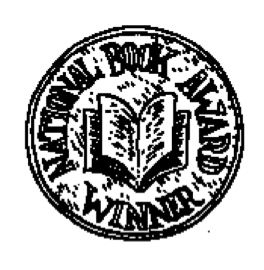1. N.B.A.
For good or ill, I have judged a lot of awards. As I’ve already remarked in these pages, I judged the National Endowment for the Arts fellowships during the week of September 11, 2001. We judged the award in a hotel in DC with the television on in the background, smoke rising from the WTC and the Pentagon, etc. Ironically, though we worked under adverse conditions, and though some of us had loved ones in New York City, the award somehow became memorable for the fact that Jonathan Franzen received a grant.[1]
I helped create and administer the Young Lions Fiction Award at the New York Public Library. I oversaw the preliminary reading committee for five years. Once a judge refused to make a decision because all our finalists were men, though the reading committee was overwhelmingly composed of women (75 percent), all of whom refused to alter the testosterone-rich short list on the basis of inclusion.
I judged an award that was funded by the wealthy heir of a media fortune and administered by a reputable arts organization. The wealthy heir made clear that an award would go to a young writer of his acquaintance. I was told by my chair to make sure this would happen. Boy, did I regret that one.
I have judged a novella contest for a quarterly. I’ve judged humor writing by undergraduates, I’ve judged an award for elementary schoolkids, I’ve judged a spoken-word slam for high-school-age poets, I have served on the admissions committee for one of the nation’s great artists’ colonies on and off for years. On many of these committees people said horrible things to their colleagues, made caustic remarks that took months or even years to heal over, and decisions were occasionally made that were precipitous, almost casual, with the result being that sometimes the people who won awards or the residencies were not the best, but nor were they the worst. In fact, as others have observed, it’s not unusual for awards to cluster around the compromise candidates, so that clear favorites can sometimes wait for years for deserved renown.
Given these experiences, I might have known better when I got the call from the National Book Foundation, which administers America’s best-known literary prize (though some people prefer the decidedly more populist Pulitzer Prize[2]), the National Book Award. When the National Book Foundation called, I was on 11th Street. That’s how excited I was by the idea of judging, excited enough to have pinpointed my location in my memory. I didn’t even bother to ask who the other judges were going to be. I asked only about the number of...
You have reached your article limit
Sign up for a digital subscription and continue reading all new issues, plus our entire archives, for just $1.50/month.
Already a subscriber? Sign in





